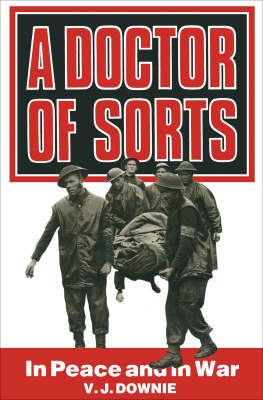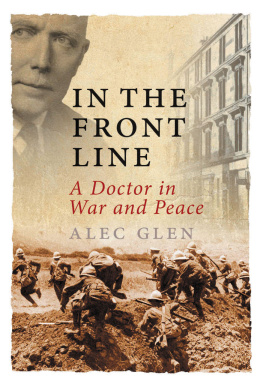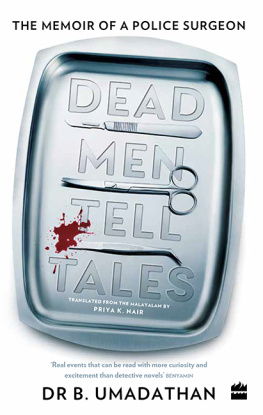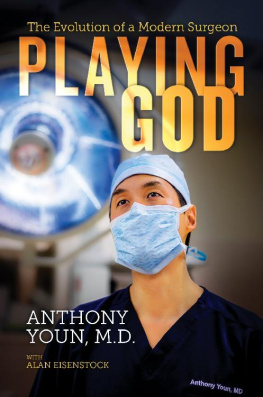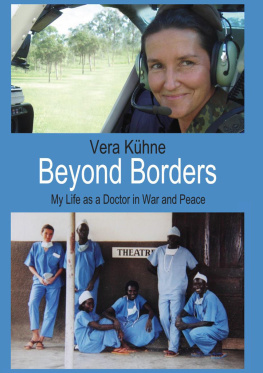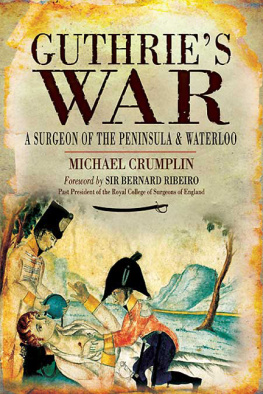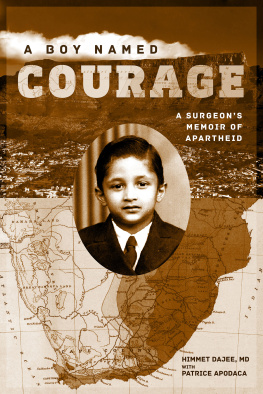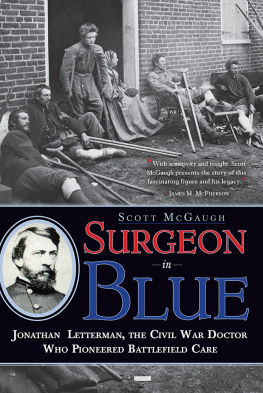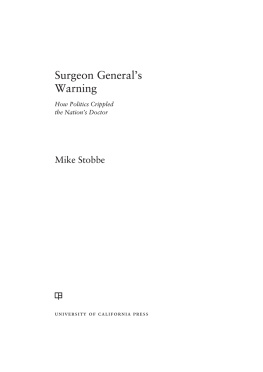A DOCTOR OF SORTS
A DOCTOR
OF SORTS
In Peace and In War
by
V.J. DOWNIE
Leo Cooper
LONDON
First published in Great Britain in 1992 by
LEO COOPER
190 Shaftesbury Avenue, London WC2H 8JL
an imprint of
Pen & Sword Books Ltd.,
47 Church Street, Barnsley, S. Yorks S70 2AS
Copyright V.J. Downie, 1992
ISBN 085052 351 6
A CIP catalogue record for this book is available
from the British Library
Typeset by Yorkshire Web, Barnsley, South Yorkshire
in Plantin Roman 10 point
Printed in Great Britain by
Redwood Press
Melksham, Wiltshire
CONTENTS
To my friends, dead or alive
My thanks are due to Sue Bradbury, of the Folio Society, for her invaluable advice and help in the preparation of this little book, and to Leo Cooper, Tom Hartman and Beryl Hill for their patience and kindness while shepherding it into the light of day.
K amal, the old gardener, was pruning the Sultans roses when he looked up to see the figure of Death in a corner of the garden. The figure raised its hand and seemed to beckon. Kamal rushed into the palace.
O Great Master! he cried to the Sultan, I have just seen the figure of Death, and he beckoned to me. I beg you, lend me a horse so that I may flee to Damascus.
The Sultan was none too pleased, but good gardeners were hard to come by and he didnt want to lose Kamal.
All right, he said, You can borrow the old grey mare, but be back by Monday, and, he added, dont expect any wages while you are away.
An hour or so later, when the sun was going down, the Sultan was strolling in the garden and he too saw the figure of Death.
Hey, you! he called. He had seen a lot of Death in his time, and he couldnt stand the chap. What the devil do you mean by coming into my garden and beckoning to my gardener? Youve scared him out of his wits.
You do me an injustice, noble Sultan, said Death. I did not beckon to Kamal; I merely raised my hand in a gesture of surprise to see him still working in your garden because I have an appointment with him in Damascus tonight.
A likely tale, you may think, but I have a fellow feeling for the Sultan, for I too have seen a great deal of death - and like the Sultan I hate it. I hate the sight, the smell, and at times the fearsome sound of it. There is, too, a moral in the story: one cannot flee from death but only regret that it is ordained without regard to justice, merit or compassion. In the Sultans day there was little that he could have done to help poor old Kamal, but times have changed. There are new sophisticated weapons in our armoury, and while Death will always claim the final victory it is no longer a walkover.
This book is concerned with the eternal conflict between life and death, but it makes no pretensions to erudition or instruction in the art of healing. It is only a miscellany of reminiscences set down in random fashion, because memories do not come in chronological or orderly sequence but as wayward thoughts which coalesce to form a picture of the whole. My narrative is in three parts; the first Medicine, being mostly about doctors and patients. The second, War, is about the one we had between 1939 and 1945. For most of that time I was employed in Field Ambulances: very little has been written about these units, in which the senior medical officers were less concerned with the practice of medicine than with the practices of soldiers; ours and those of the other side. During the war I managed to forget everything I had learned so laboriously about the craft of surgery and in 1945 I had to start again from the beginning. In the third part I have ventured some reflections on two aspects of the human condition which touch us all from time to time.
The accounts of incidents which concern my patients and my companions are true to the best of my recollection, but many of the characters are long since dead and I have tried to ensure that none of them, except those whose names are mentioned in full, could be recognized by others.
A sidelong look at some aspects of the healing art
Felo de se sounds much more elegant than suicide, and literally means felon of himself. Perhaps it is an antecedent of that modern snippet of home-spun philosophy es a fool to isself.
H e was dead. I could see that. His throat was cut, more or less from ear to ear.
I had qualified as a doctor two days before and this was my first patient. Why, I thought miserably, did he have to be dead? I had lain awake in my little room in the doctors quarters waiting for the call which I knew must come that night. The whole hospital, a huge teaching hospital, depended on me: I was sure of it. My room was small and dingy, with an old wardrobe, a chair and an iron bedstead. In those days we did not have the luxury of a bedside telephone, and when the Night Sister knocked on the door to tell me I was wanted in Casualty I ran all the way. It was a long way, and I was out of breath.
I stood looking down at my first patient. He was middle-aged and had a big bushy moustache. In my six years as a medical student nobody had ever told me what to do with a dead man. We had been told at great length how to try and stop people getting dead but we had never ventured over the threshold of eternity.
The Casualty Porter, a grey-haired old fellow, was all too familiar with the inadequacies and shortcomings of newly-qualified doctors, but he was a nice chap and he came to my rescue.
Shall I take im to the mortuary, sir?
I gave the old fellow a grateful glance and the man was wheeled away on a trolley. I sat down and lit a cigarette, feeling that I had made a rather undistinguished beginning to my medical career. It was soon to become clear that my debut was even more inauspicious than I had thought. The Resident Surgical Officer, a man regarded by the likes of me as closely related to God, arrived in Casualty.
Have you seen Ferdy? he asked. Ferdy was one of the senior hospital consultants.
No, I said, not for weeks.
Thats odd, the R.S.O. went on. His wife has just telephoned to say hes cut his throat.
I looked at the Casualty Porter; he looked at me, and we both looked at the R.S.O.
My God! I said, and the three of us ran to the mortuary. That, too, was a long way away and we were all out of breath as we looked at the body. It was still on its trolley and it was Ferdy. Its astonishing what a difference a cut throat makes to a chaps appearance.
Since that night I have seen scores of suicides and attempted suicides, some impulsive and demonstrative, even spurious, others carefully planned and coldly efficient. The emotions which trigger this desperate act, whether unrequited love, despair or impending disgrace, have probably remained constant over the centuries but the methods by which the felon can choose to assault his or her person are very dependent on circumstance and period. The twentieth century in particular has been a time of change, when the modi operandi have altered in line with contemporary technology.
In my young days throat-cutting was a very popular way of escaping from it all. It is out of fashion now, because gentlemen no longer shave with the aptly named cut-throat razor and, rather surprisingly, a certain expertise is required to bring the enterprise to a fatal conclusion. Satisfaction cannot be guaranteed and although someone, somewhere, may have written a treatise on Hints for Beginners I have no intention of giving away the tricks of the trade. Poor Ferdy knew them only too well.
When Mr King C. Gillette brought employment to his native state of Wisconsin by inventing the safety razor he probably had no idea that he was reducing the work load of casualty surgeons worldwide and causing a deal of frustration among potential felons of themselves. Authors of textbooks on forensic medicine and innumerable writers of detective fiction have gone to great lengths in describing just how a suicidally cut throat can be distinguished from that cut by (say) a cuckolded husband or a prospective legatee. All their work has gone to nought. We dont get cut throats any more. Even if there is a decent old-fashioned razor in the house its never handy when its wanted. Probably in an attic with grandpas golf clubs and his shooting stick.

